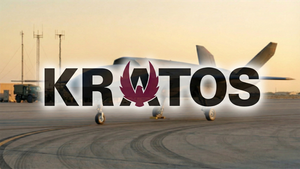CAMBRIDGE, Mass., Nov. 03, 2025 (GLOBE NEWSWIRE) -- Tisento Therapeutics today announced that the findings from the company’s interview study in MELAS (Mitochondrial Encephalomyopathy, Lactic Acidosis, and Stroke-like Episodes) were published on October 27, 2025, in the Journal of Patient-Reported Outcomes. Based on qualitative interviews with five expert clinicians and 16 adults with MELAS in North America, the study aimed to identify, describe, and substantiate important and relevant signs, symptoms, and health-related quality-of-life impacts of this rare mitochondrial disease.
The publication, entitled “Signs, Symptoms, and Health-Related Quality of Life in MELAS: Measuring What’s Important from the Patient and Clinician Perspectives,” can be viewed here. This groundbreaking work informed the clinical outcome assessments and endpoint strategy for the company’s ongoing global Phase 2b PRIZM study, which is evaluating the impact of investigational zagociguat treatment on fatigue, cognitive performance, and other key aspects of MELAS.
“Those living with MELAS have historically faced a lack of understanding about their condition and their lived experiences. This study addresses a critical research gap in this rare disease,” said Kira Mann, chief executive officer of MitoAction. “As this study shows, MELAS manifests in a wide range of symptoms, including fatigue and cognition, and profoundly affects multiple aspects of patients’ lives. Those living with MELAS urgently need treatments that target the most debilitating aspects of this disease.”
Patients in the study reported a total of 35 signs and symptoms. The most frequently reported symptoms were physical fatigue (n=15, 93.8%), hearing loss (n=13, 81.3%), mental fatigue (n=12, 75.0%), exercise intolerance (n=11, 68.8%), and memory problems (n=11, 68.8%). In addition, 68 health-related quality-of-life impact concepts emerged, which were categorized into 15 impact domains. The impact domains reported by the most participants were adaptive behaviors (n=14, 87.5%); work impacts (n=14, 87.5%); and emotional function (n=13, 81.3%).
“At Tisento, we believe that meaningful innovation starts with listening to the lived experiences of those affected by a disease. We are pleased that the MELAS interview study has advanced the understanding of this rare disease by elucidating both patients’ and physicians’ perspectives about the most important symptoms to address,” said Peter Hecht, Ph.D., chief executive officer of Tisento. “We’re grateful to everyone who participated, as their insights helped shape our clinical program. We are excited to continue advancing zagociguat, an investigational treatment for MELAS with the potential to improve both fatigue and cognitive function.”
About the PRIZM Study
PRIZM – a Phase 2b Randomized, Placebo-Controlled Trial Investigating Zagociguat in MELAS – is evaluating the efficacy and safety of oral zagociguat 15 mg or 30 mg compared to placebo when administered once-daily for 12 weeks in participants with genetically and phenotypically defined MELAS. The PRIZM study has a crossover design, with two 12-week treatment periods separated by a 4-week washout period. All participants will receive zagociguat during one of the 12-week periods and placebo during the other. Participants who complete treatment in the study have the opportunity to enroll in an open-label extension study.
The global PRIZM study is enrolling approximately 44 participants at mitochondrial disease centers of excellence in the U.S., Italy, Germany, United Kingdom, Australia, and Canada. More information may be found at www.tisentotx.com/prizm and ClinicalTrials.gov (NCT06402123).
About Zagociguat
Zagociguat is a once-daily, oral, clinical-stage investigational medicine with potential to positively impact both peripheral and central nervous system manifestations of mitochondrial diseases. Zagociguat stimulates soluble guanylate cyclase (sGC), an enzyme that is found in virtually every cell in every tissue of the body and is part of a system of cellular mechanisms that control critical physiological functions including neuronal function and blood flow.
A first-in-class, brain-penetrant sGC stimulator, zagociguat is hypothesized to rebalance dysregulated cellular pathways in MELAS. By restoring cellular functions that support mitochondria, zagociguat may help restore mitochondrial energy production and physiological function.
In a Phase 2a study in patients with MELAS, zagociguat exhibited a favorable safety profile, exposure throughout the body including in the central nervous system, and improvements in neuronal function, mitochondrial function, and blood flow in the brain. Zagociguat is currently being evaluated as a treatment for MELAS in the Phase 2b PRIZM study.
Zagociguat received Fast Track designation from the U.S. Food and Drug Administration for the treatment of MELAS. Fast Track is a process designed to facilitate the development and potentially expedite the review of medicines to treat serious conditions and fill an unmet medical need, with the goal of getting important new drugs to patients earlier.
For more information, visit www.tisentotx.com/our-science.
About Tisento Therapeutics
Tisento Therapeutics, a privately held biotech company, is developing novel medicines to treat diseases with significant unmet need, beginning with MELAS and other genetic mitochondrial diseases. Ti sento means “I hear you” in Italian; our approach to innovation begins with listening to patients and then channeling what we learn into decisive actions that shape our research and clinical programs.
Tisento is guided by a high-caliber internal team of biopharma veterans and an extensive external network of expert physicians, patient advocacy groups, researchers, industry-leading vendors, and other close collaborators who are partners in our mission to develop meaningful treatments for mitochondrial diseases.
Learn more at our website, www.tisentotx.com, or connect with us on LinkedIn, Facebook, X (@tisentotx), or Bluesky.
Contact
Tisento Media Relations
Jessi Rennekamp, Astrior Communications
Email: jessi@astriorcomms.com






